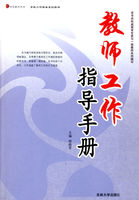She dwelt at least about Tepari, - "the sea-cliffs," - the eastern fastness of the isle; walked by paths known only to herself upon the mountains; was courted by dangerous suitors who came swimming from adjacent islands, and defended and rescued (as I gather) by the loyalty of native fish. My anxiety to learn more of "Ahupu Vehine" became (during my stay in Taiarapu) a cause of some diversion to that mirthful people, the inhabitants.
Note 3, "COVERED AN OVEN." The cooking fire is made in a hole in the ground, and is then buried.
Note 4, "FLIES." This is perhaps an anachronism. Even speaking of to-day in Tahiti, the phrase would have to be understood as referring mainly to mosquitoes, and these only in watered valleys with close woods, such as I suppose to form the surroundings of Rahero's homestead. Quarter of a mile away, where the air moves freely, you shall look in vain for one.
Note 5, "HOOK" of mother-of-pearl. Bright-hook fishing, and that with the spear, appear to be the favourite native methods.
Note 6, "LEAVES," the plates of Tahiti.
Note 7, "YOTTOWAS," so spelt for convenience of pronunciation, QUASI Tacksmen in the Scottish Highlands. The organisation of eight subdistricts and eight yottowas to a division, which was in use (until yesterday) among the Tevas, I have attributed without authority to the next clan: see page 33.
Note 8, "OMARE," pronounce as a dactyl. A loaded quarter-staff, one of the two favourite weapons of the Tahitian brave; the javelin, or casting spear, was the other.
Note 9, "THE RIBBON OF LIGHT." Still to be seen (and heard)spinning from one marae to another on Tahiti; or so I have it upon evidence that would rejoice the Psychical Society.
Note 10, "NAMUNU-URA." The complete name is Namunu-ura te aropa. Why it should be pronounced Namunu, dactyllically, Icannot see, but so I have always heard it. This was the clan immediately beyond the Tevas on the south coast of the island. At the date of the tale the clan organisation must have been very weak. There is no particular mention of Tamatea's mother going to Papara, to the head chief of her own clan, which would appear her natural recourse. On the other hand, she seems to have visited various lesser chiefs among the Tevas, and these to have excused themselves solely on the danger of the enterprise. The broad distinction here drawn between Nateva and Namunu-ura is therefore not impossibly anachronistic.
Note 11, "HIOPA THE KING." Hiopa was really the name of the king (chief) of Vaiau; but I could never learn that of the king of Paea - pronounce to rhyme with the Indian AYAH - and I gave the name where it was most needed. This note must appear otiose indeed to readers who have never heard of either of these two gentlemen; and perhaps there is only one person in the world capable at once of reading my verses and spying the inaccuracy. For him, for Mr. Tati Salmon, hereditary high chief of the Tevas, the note is solely written: a small attention from a clansman to his chief.
Note 12, "LET THE PIGS BE TAPU." It is impossible to explain TAPU in a note; we have it as an English word, taboo.
Suffice it, that a thing which was TAPU must not be touched, nor a place that was TAPU visited.
Note 13, "FISH, THE FOOD OF DESIRE." There is a special word in the Tahitian language to signify HUNGERING AFTER FISH. Imay remark that here is one of my chief difficulties about the whole story. How did king, commons, women, and all come to eat together at this feast? But it troubled none of my numerous authorities; so there must certainly be some natural explanation.
Note 14, "THE MUSTERING WORD OF THE CLAN."TEVA TE UA, TEVA TE MATAI!
Teva the wind, Teva the rain !
Notes 15 and 16, "THE STAR OF THE DEAD." Venus as a morning star. I have collected much curious evidence as to this belief. The dead retain their taste for a fish diet, enter into copartnery with living fishers, and haunt the reef and the lagoon. The conclusion attributed to the nameless lady of the legend would be reached to-day, under the like circumstances, by ninety per cent of Polynesians: and here Iprobably understate by one-tenth.
THE FEAST OF FAMINE
MARQUESAN MANNERS
I. THE PRIEST'S VIGIL
IN all the land of the tribe was neither fish nor fruit, And the deepest pit of popoi stood empty to the foot. (1)The clans upon the left and the clans upon the right Now oiled their carven maces and scoured their daggers bright;They gat them to the thicket, to the deepest of the shade, And lay with sleepless eyes in the deadly ambuscade.
And oft in the starry even the song of morning rose, What time the oven smoked in the country of their foes;For oft to loving hearts, and waiting ears and sight, The lads that went to forage returned not with the night.
Now first the children sickened, and then the women paled, And the great arms of the warrior no more for war availed.
Hushed was the deep drum, discarded was the dance;And those that met the priest now glanced at him askance.
The priest was a man of years, his eyes were ruby-red, (2)He neither feared the dark nor the terrors of the dead, He knew the songs of races, the names of ancient date;And the beard upon his bosom would have bought the chief's estate.
He dwelt in a high-built lodge, hard by the roaring shore, Raised on a noble terrace and with tikis (3) at the door.
Within it was full of riches, for he served his nation well, And full of the sound of breakers, like the hollow of a shell.
For weeks he let them perish, gave never a helping sign, But sat on his oiled platform to commune with the divine, But sat on his high terrace, with the tikis by his side, And stared on the blue ocean, like a parrot, ruby-eyed.
Dawn as yellow as sulphur leaped on the mountain height:
Out on the round of the sea the gems of the morning light, Up from the round of the sea the streamers of the sun; -But down in the depths of the valley the day was not begun.
In the blue of the woody twilight burned red the cocoa-husk, And the women and men of the clan went forth to bathe in the dusk, A word that began to go round, a word, a whisper, a start:















